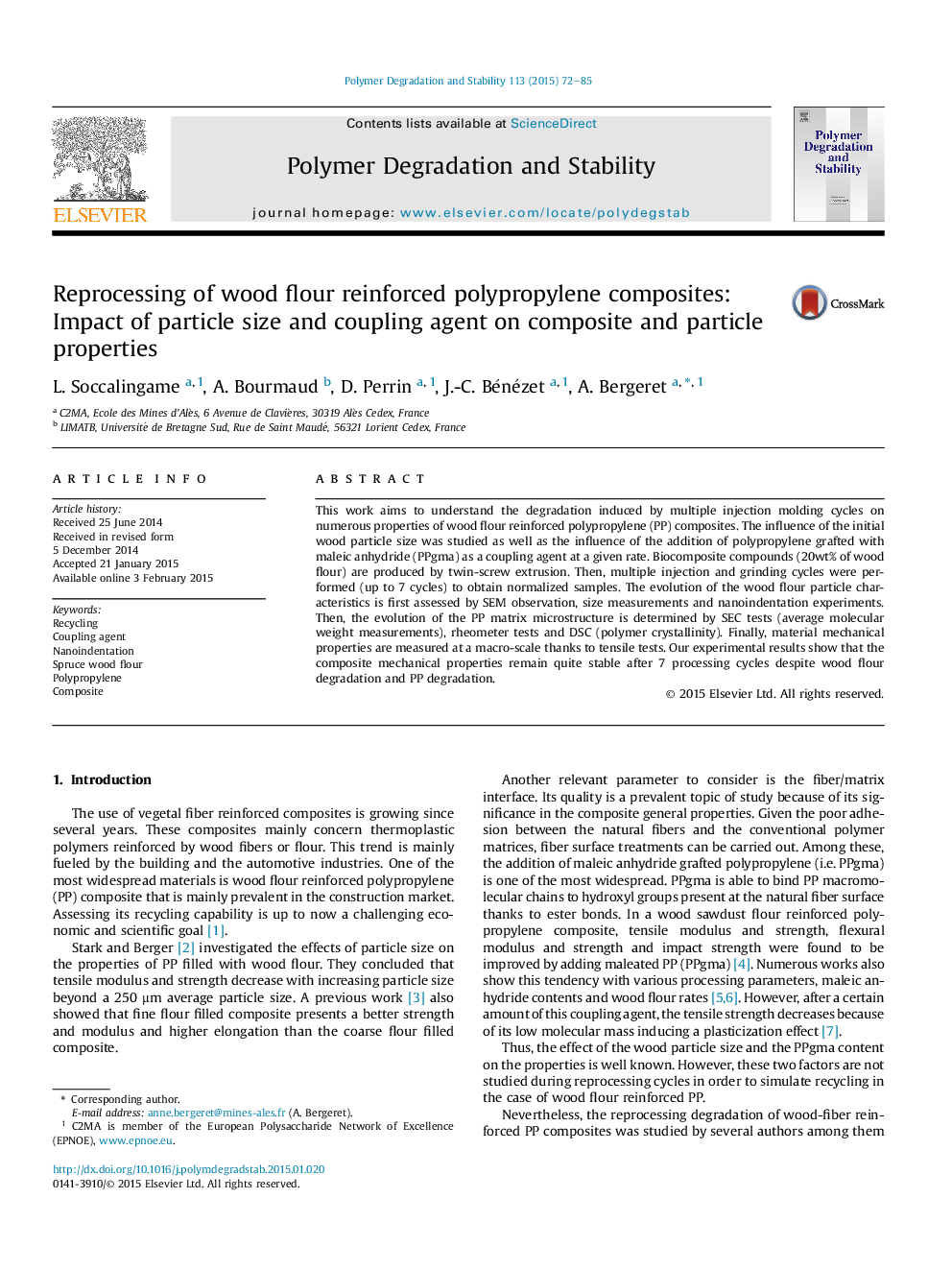| Article ID | Journal | Published Year | Pages | File Type |
|---|---|---|---|---|
| 5201620 | Polymer Degradation and Stability | 2015 | 14 Pages |
This work aims to understand the degradation induced by multiple injection molding cycles on numerous properties of wood flour reinforced polypropylene (PP) composites. The influence of the initial wood particle size was studied as well as the influence of the addition of polypropylene grafted with maleic anhydride (PPgma) as a coupling agent at a given rate. Biocomposite compounds (20wt% of wood flour) are produced by twin-screw extrusion. Then, multiple injection and grinding cycles were performed (up to 7 cycles) to obtain normalized samples. The evolution of the wood flour particle characteristics is first assessed by SEM observation, size measurements and nanoindentation experiments. Then, the evolution of the PP matrix microstructure is determined by SEC tests (average molecular weight measurements), rheometer tests and DSC (polymer crystallinity). Finally, material mechanical properties are measured at a macro-scale thanks to tensile tests. Our experimental results show that the composite mechanical properties remain quite stable after 7 processing cycles despite wood flour degradation and PP degradation.
